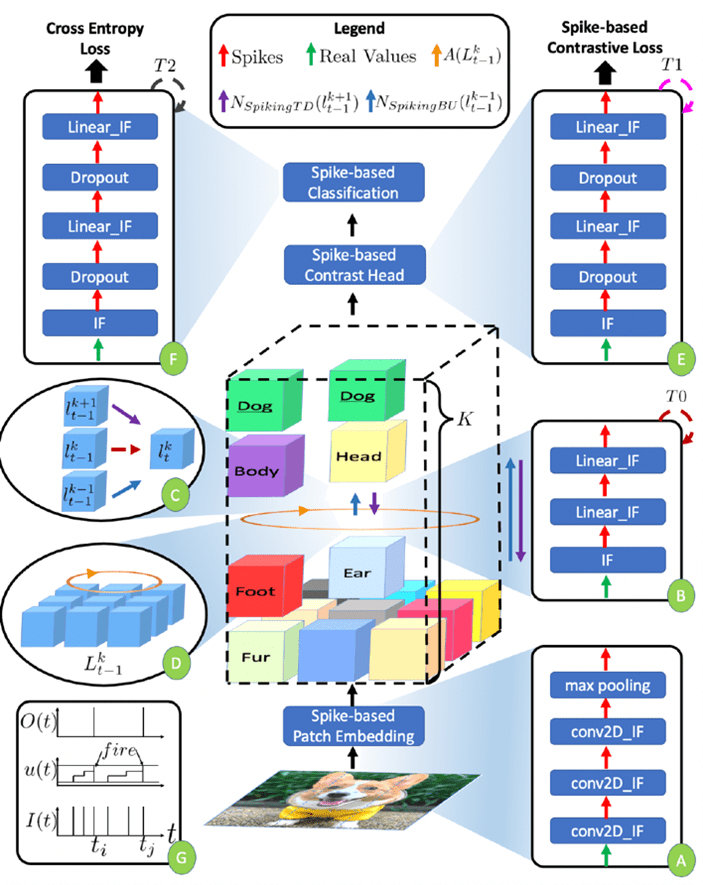
Members: Peng Kang, Srutarshi Banerjee, Henry Chopp, Aggelos Katsaggelos, Oliver Cossairt
To mimic the neural architectures of biological sensors like the retina and cochlea and capture the functionalities of these energy-efficient biological sensors, event-driven sensors have begun to soar recently. Like biological sensors that generate spikes to the changing environment, these bio-inspired event-driven sensors build circuits to dynamically produce the binary events to the changing environmental stimuli. In general, such event-based sensors can achieve higher energy efficiency, better scalability, and lower latency. However, due to the high sparsity and complexity of event-driven data, processing and learning with these sensors remains in their infancy. In this project, we propose to utilize spiking neural networks (SNNs) to tackle event-driven processing and learning. Unlike artificial neural networks (ANNs) that are synchronous and conduct expensive real-valued computations, bio-inspired SNNs are asynchronous and utilize binary 0-1 spikes to efficiently process the information. Due to the shared characteristics between event sensors and SNNs, it is natural to think of using SNNs to process and learn event-driven data. However, because of the limited representative abilities of current spiking neuron models and high spatio-temporal complexity in the event-based data, it is still challenging to build effective and efficient SNN models to conduct event-driven processing and learning. In this proposal, we will dive into three major problems: 1) how can we improve the representation capability of existing spiking neurons? 2) how can we build effective and efficient SNNs to solve event-driven classification problems? 3) how can we build effective and efficient SNNs to solve event-driven regression problems?

Paper Links: https://www.frontiersin.org/articles/10.3389/fnins.2023.1127537/full
https://ieeexplore.ieee.org/abstract/document/9892074
